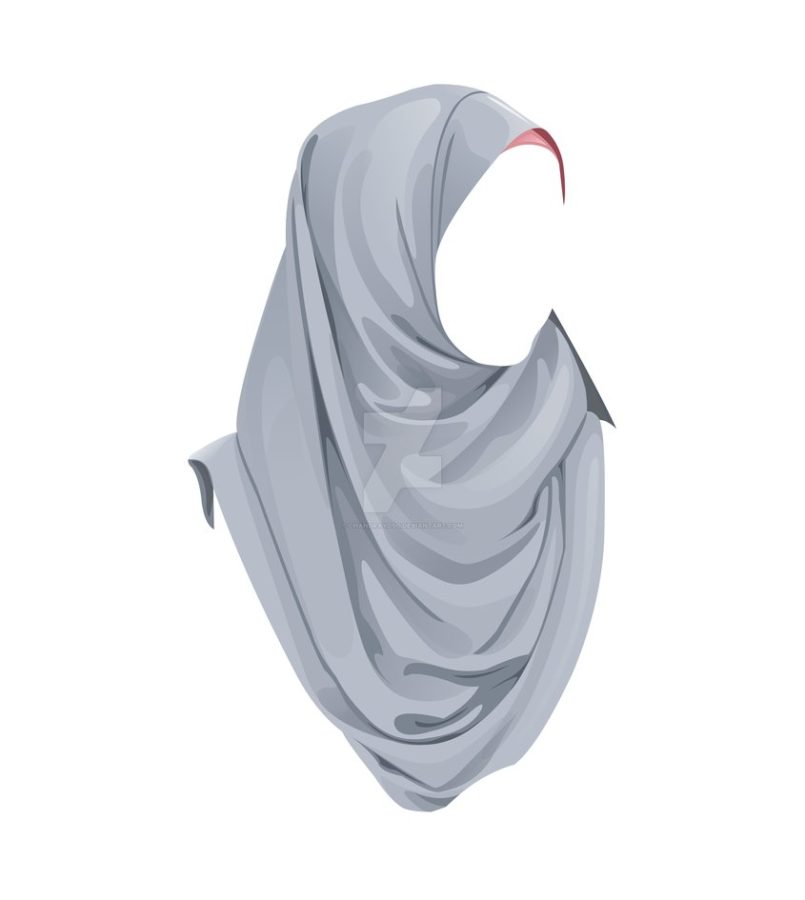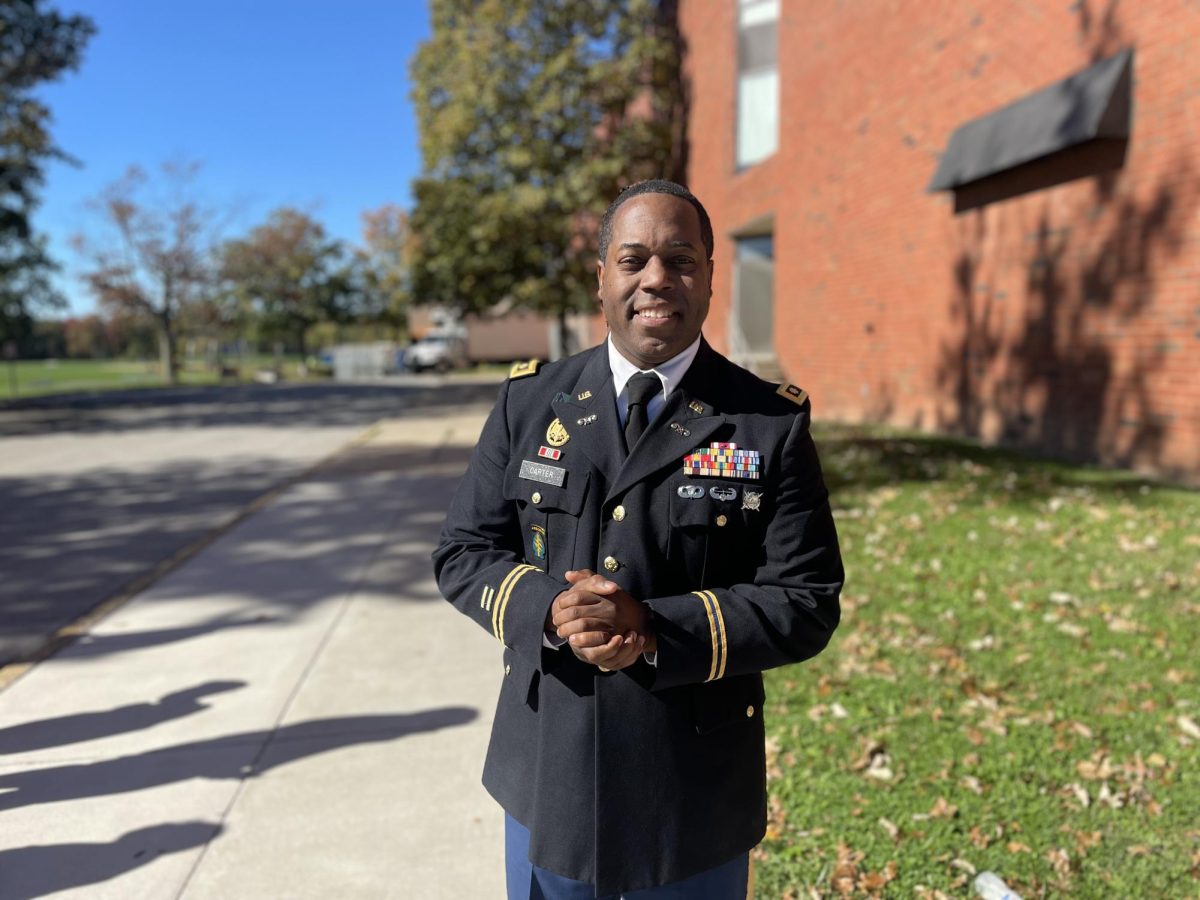My Hijab is my Right: Expanding the Conversation about ‘Consent’
May 6, 2019
Wearing hijab in the US has both pros and cons, as you are, at all times, identifiably a Muslim woman. One thing that I consider a perk of dressing the way that I do – in a school community like this one – is that most people can recognize me from the other end of the hall. I’m not the only hijabi in our school building. Hijabi, a term popularized recently, refers to a Muslim woman who observes the guidelines of the religious head covering. I’ll admit I’m also not the most stylish hijabi amongst us, but as a somewhat permanent fixture in the building, I’ve become known for – amongst other things – wearing the hijab. Before Christmas break I had an interesting experience in relation to my hijab that encouraged me to participate in the collective conversation about consent.
While “hijab” is a term applied to both men and women, most people are aware of the most basic guideline as it applies more towards women: the head covering. Observing hijab as a woman means, covering my hair, my chest and not purposefully accentuating my body. Hijabis don’t shower in hijab, nor do we sleep in hijab (yes, people ask those questions!). The Qu’ran states that women do not need to observe hijab when we are only in the company of other women and girls. Additionally, we don’t have to wear the covering around our fathers and brothers, our husband or husband’s father, our sons or our husband’s sons, our nephews or other prepubescent boys. This means that even in our homes, in the presence of uncles and cousins, we do wear hijab.
Wearing hijab every day is a choice for me and is integral to my identity as an adult Muslim woman. When people ask me, out of curiosity, to take off my hijab so they can “see what I look like,” it’s as if they are asking me to remove my shirt. What’s under my hijab is personal and private in the same way that what’s under my shirt is personal and private. Every day, I make a conscious decision to dress the way I do, as it’s extremely important to me.
Sometimes extenuating circumstances arise, such as for passport pictures or security in the airport or even illness, in which case the intention is not to be immodest but to comply with or accommodate whatever the regulations as necessary per situation.
Leading into Christmas break, I was battling some kind of upper respiratory viral infection that was going around. The day of the winter concert, I felt so ill that another teacher proposed I go to the nurse. I sat in the back office while she took my temperature, and she suggested I may have been feeling hotter because of my scarf. Since it was just the two of us in the office, myself and another woman, I took my scarf off.
Then she offered me some water, which I accepted, but when she went to get it, she left the door to the office open. Feeling really sick, I didn’t pay much attention to the open door, and I just waited for the nurse to return with the cold water. While I was waiting, an adult male staff member came into the office. Even though I was in the back office and he was in the main waiting area, with the door open we could see each other plain as day. And there I was, no hijab, which to me, again, may as well have been shirtless. What happened next was very interesting to me. He looked at me, hijab-less, and in the same breath, before a second passed, he turned and looked away. What was most interesting was that his looking away didn’t seem to be a part of a sweeping glance of the office in which he observed me and the area and continued to take inventory of the space. Nor did he, realizing the rare opportunity to “see what I look like,” take a longer look, make conversation, comment on the rarity of the moment. He looked away, turning his whole head and body away from me so that what I could see of him was his back, and I was completely out of his view.
I later spoke to this man about this incident, as I had spoken to other staff members, as this exchange had left such an impression on me. As I’ve written, I actually have students – male and female – and other adult men in my life ask me to take hijab off, if only for a second, if only to lift it quickly, so that they can “see” me. It would not have been the first time that someone would have attempted to profit from a moment, a slip of fabric, to take a closer look. The most interesting, and perhaps moving, part of the scenario is that when I spoke to this staff member about the exchange and offered thanks for his discretion – this deliberate decision to look away – he explained that it had not been about hijab at all. How funny. He said that it really didn’t even register to him who I was. He saw a young woman alone in the nurse’s office and what registered to him was privacy. “Look away” “not my business” “nothing to see here” are things I jokingly imagine went through his mind. The truth is, though, that in the split second it takes to make a decision like that, there’s usually nothing going through your mind at all.
What happened in that moment was not a choice or a decision being made but rather a manifestation of something bigger: his character. Our attitudes towards rape culture, consent, harassment, discrimination, and gender roles are not totally our own burdens to bear. We are all a part of a society that has normalized certain behaviors regarding the relationship between people in general, between those deemed or perceived as superior or inferior, and between most particularly, those who identify as men and those who identify as women. What is important now is our willingness to unlearn and reject incorrect and abusive behavior. What is important now is that our willingness or unwillingness to do so is most definitely reflective of a person’s character. Some people have had the good fortune of being raised by people who have already, for a long time, rejected bigoted ideas.
Some people have had that mixed bag of being taught respect but also being taught that respect is reserved for those who “respect themselves.” Some of us are holding on tooth and nail to the idea that going back to the old days when there was no sexual harassment or rape culture would be best. Only that there was always sexual harassment but people didn’t talk about it or take it seriously so offenders and offenses were lumped in with “boys being boys” “locker room talk” “flattery” “humor” and other attempts to normalize inappropriate behavior.
It is important to note, though, that consent, harassment, discrimination and abuse of powers is not a conversation about just men and women. This is is about acceptable interactions between men and men, women and women, adults and minors, employees and employers, people in positions of power and authority and those subject to their will. It is important to note that consent is always and only direct and explicit. It’s not hesitant or coerced. It’s not murky. It’s not the absence of objection. Predators, and those who would trample on a person’s right to consent, think of powerful people as people in position of ownership. When a person asks me to remove my hijab so that they can “see” me, they are infringing upon my right to consent to their extent of access to my body. Some people see women’s bodies as something that is their right to enjoy and have access to, and wearing hijab is an example of my infringement on their right to access to my body. While for this particular male staff member it had nothing to do with hijab, he was acting on the belief that a woman’s body and expectation of privacy and personal space – even in public – are hers to control. His action was indicative of the belief that being in the right time and place, at the same time as the absence of objection did not equal to my consenting to his further engaging in the opportunity.
I wish I had some profound conclusion to make about consent, but I don’t. I felt that this exchange was worth sharing, though, because it was a great example of someone understanding and applying their understanding of consent, and how it does matter and it does make a difference. Feeling respected and empowered and safe is a right we should all share. Consent is a protection of that right. I felt so moved that this fellow staff member extended me this protection and more so to learn that is was not about me, but more about him and his understood obligation to protect that right for others. Sometimes these exchanges seem harmless, but intent does not justify impact, as they say. I was surprised by this man’s level of consciousness to make the decision to turn away from me. What I would like to take away from this exchange is that we should all be a lot more conscious, a lot more aware, of how we co-exist in people’s spaces. We should pay attention to the absences of objection and hold ourselves accountable to wait for a firm and clear “yes” of consent. Until then we should rethink our entitlement to each other’s spaces and attention and affection. And, you should stop asking me to see my hair! 🙂


